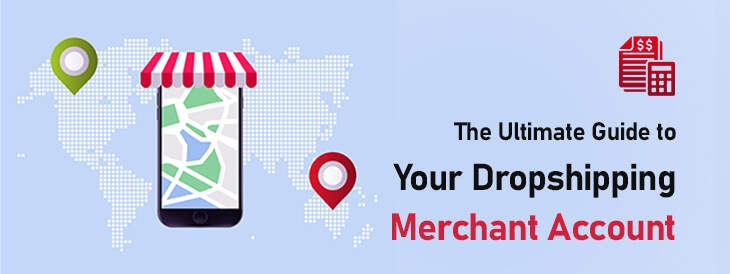The Ultimate Guide to Your Dropshipping Merchant Account
The Ultimate Guide to Your Dropshipping Merchant Account

If you are an e-commerce entrepreneur looking to start a dropshipping business, then you must have come across the term “dropshipping merchant account”. But what exactly is it? And why is it important for your dropshipping business? In this ultimate guide, we will delve into all the details of a dropshipping merchant account and how it can benefit your business.
From understanding what it is, to finding the right provider, to optimizing its use for your business – we’ve got you covered. So, let’s dive in and discover everything you need to know about your dropshipping merchant account.
Understanding the Basics of a Dropshipping Merchant Account
At its core, a dropshipping merchant account is a specialized type of bank account that allows e-commerce entrepreneurs to accept and process electronic payment transactions. This is crucial in the dropshipping business model, where entrepreneurs sell products without keeping them in stock. Instead, when a store sells a product, it purchases the item from a third party and has it shipped directly to the customer.
The dropshipping merchant account acts as the financial intermediary, facilitating the transfer of payments from the customer to the seller, and ultimately, to the supplier.
Understanding the fundamentals of how a dropshipping merchant account works is key to realizing its importance. It not only enables the processing of credit and debit card transactions but often also includes various forms of online payments, enhancing the flexibility and efficiency of transaction processing.
This type of account is tailored to meet the unique needs of dropshipping businesses, which can have different risk profiles compared to traditional retail models due to the nature of their supply chain and order fulfillment processes. With the right dropshipping merchant account, businesses can ensure smooth, secure payment transactions, contributing significantly to customer satisfaction and overall business success.
Some Related Blogs
- Recurring Payment Processing: A Must-have For Subscription Businesses
- Boosting Your Gambling Online Business: The Power Of A Merchant Account
- How To Simplify Online Payments For Nutraceuticals
- Exploring The Benefits Of Peptide Merchant Accounts
Why Dropshipping Businesses Need Specialized Merchant Accounts
Dropshipping businesses operate differently from traditional e-commerce or brick-and-mortar stores, necessitating specialized merchant accounts tailored to their unique operational requirements.
First and foremost, the inherent risk associated with dropshipping – such as potential chargebacks due to shipping delays or supplier issues – makes these types of businesses higher risk in the eyes of financial institutions and payment processors. A specialized dropshipping merchant account is designed with this in mind, offering features and support to mitigate these risks.
Additionally, the global nature of dropshipping, where suppliers and customers can be located anywhere in the world, requires a merchant account that can handle international transactions smoothly and efficiently, including currency conversion and compliance with local payment regulations. These specialized accounts also often provide robust fraud protection services, which are crucial for online businesses that may be more susceptible to fraudulent transactions.
Furthermore, the scalability of dropshipping businesses means that transaction volumes can fluctuate significantly. Specialized merchant accounts can accommodate these fluctuations, ensuring that payment processing capabilities can scale with the business. Without a merchant account that understands and adapts to these unique needs, dropshipping entrepreneurs might face operational hurdles, such as payment processing limits or unexpected fees, hindering business growth and profitability.
How to Choose the Right Dropshipping Merchant Account Provider
Choosing the right dropshipping merchant account provider is a critical decision for your e-commerce business. Start by comparing the fees, transaction rates, and any additional costs associated with each provider.
Look for transparent pricing structures to avoid unexpected expenses down the line. Additionally, evaluate the customer support services offered.
Reliable, 24/7 customer support is essential, as issues with payment processing can arise at any time and need to be resolved promptly to maintain customer satisfaction and business operations.
Consider the provider’s experience with and understanding of the dropshipping model. Providers that are familiar with the unique challenges of dropshipping can offer tailored services and advice. Investigate the technology and payment gateway the provider uses to ensure it’s compatible with your e-commerce platform and can support a seamless integration.
Security features are also paramount; ensure that the provider follows industry-standard security measures to protect your transactions and customer data. Lastly, check for reviews or testimonials from other dropshipping businesses to gauge the provider’s reputation and reliability. Selecting a merchant account provider that aligns with your business needs will set a strong foundation for managing financial transactions in your dropshipping business.
Navigating the Application Process for a Dropshipping Merchant Account
Navigating the application process for a dropshipping merchant account involves several key steps. First, prepare by gathering necessary business documentation, such as your business license, EIN (Employer Identification Number), and financial statements. These documents will help prove your business’s legitimacy and financial stability.
Next, research potential providers to ensure they align with your business model and offer the services you need. When you’re ready to apply, fill out the application form with accurate and comprehensive information about your business. Be honest about the nature of your dropshipping business, as transparency will help the provider assess your needs and risk level appropriately.
It’s also crucial to have your website ready and compliant with the requirements of most merchant account providers. This includes having clear product descriptions, refund and return policies, privacy policies, and contact information on your site.
Some providers might conduct a thorough review of your website to ensure it meets their standards for security and customer experience. Finally, be prepared for a possible credit check or request for additional documentation. The approval time can vary, so plan accordingly and keep open lines of communication with the provider to address any issues or questions that arise during the process.

Email us anytime!
Email customer service 24/7 at info@payment-guru.com

Call us anytime!
Reach customer care 24/7 at +1 (617) 616-8547
